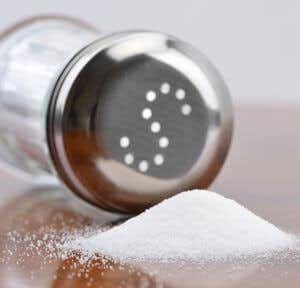
People have fought over salt for thousands of years. In both the Old World and the New, these were sometimes pitched battles that took human lives. Venice and Genoa went to war over the control of salt in the 14th century. Access to salt played a critical role in both the Revolutionary and Civil Wars.
Today, the clash over salt is a war of words. For decades public health experts have exhorted Americans to slash salt consumption. Organizations such as the American Heart Association (AHA) and the Centers for Disease Control and Prevention (CDC) recommend that people over 50 as well as anyone with high blood pressure or diabetes limit sodium intake to 1,500 mg a day (less than half the average daily sodium consumption in the US).
Scientists knew that some people with hypertension could control it by cutting back on salt, although a meta-analysis of studies revealed that salt restriction also raised LDL cholesterol and the stress hormones such as noradrenaline, renin and aldosterone (JAMA, May 6, 1998).
It comes as a shock to most Americans to learn that epidemiological studies have shown that people consuming the least sodium are at the highest risk of premature death (American Journal of Medicine, March, 2006; JAMA, May 4, 2011). If there are downsides to lowering sodium intake, public health experts might need to be careful about urging everyone to avoid salt.
The universal warning that Americans need to limit sodium in their diets took a blow, metaphorically speaking, when the Institute of Medicine (IOM) brought out its evaluation of how much sodium restriction is desirable and safe (IOM, May 14, 2013). This prestigious group advises the CDC on health policy. In reviewing recent research, it concluded that lowering excessive sodium intakes would benefit public health, but that the research does not clearly show that limiting sodium to less than 2,300 mg daily would save lives. The IOM’s most controversial conclusion was stated cautiously: “The evidence on health outcomes is not consistent with efforts that encourage lowering of dietary sodium in the general population to 1,500 mg/day.”
Now, everyone agrees that a diet heavy on lunchmeat, bacon, cheese and French fries provides more salt and fat than is good for us. The scientists are really arguing about realms of salt restriction most people don’t even approach. But does it make sense to try to get everyone to struggle towards a diet that is difficult to achieve unless we are sure the rewards will be significant?
It might be better to figure out who is salt sensitive and learn how to help them reduce their sodium consumption. Researchers at the University of Virginia have just developed a urine test that can identify salt-sensitive individuals (Clinica Chimica Acta, June 5, 2013). About one out of four adults will develop high blood pressure if they consume too much sodium. For these people, salt restriction makes sense, though the scientists might continue to argue about just how low they should go.
One-size-fits-all recommendations are no longer appropriate in an age of personalized medicine. The IOM’s report recognizes this and should be taken seriously by public health authorities.
Readers have strong feelings about sodium. When data contradict strongly held beliefs, people often get upset. Here are just a few examples:
“I’m a little disappointed in the wishy-washy position of the Peoples Pharmacy, I guess you have to protect yourself. As you point out, the human body is very good at saving salt or eliminating salt as needed (in a healthy person). Salt is an essential part of our diets. An office worker in air conditioning may not need a lot. Someone working outside in the south in summer needs extra. One-size-fits-all medical advice is bad advice.” Andrew
“My blood pressure went down when I started using MORE salt. My mother never used salt and I was raised that way. My husband uses about eight times the salt I do and always had lower BP. I found that SOME people do better when they lower their salt intake, but some people actually have their blood pressure go UP on low salt diets.
“As usual, one size does not fit all, but the AMA and the AHA and others always anxious to tell us what to do just spout off general advice. Salt is necessary for stomach acid and digestion. I remember that my father, who worked outside, carried salt tablets and water in the summer. On my grandfather’s cattle ranch there were SALT LICKS. His cows were very healthy.” D. S.
“This issue has been debated for a long time. It’s foolish to put this into a “one-size-fits-all” category. People that work outside during the summer need more salt than people that work inside with air conditioning. Everyone is different. My dad doesn’t sweat a lot, I sweat like crazy when it is hot and humid. It would be nice if we could get individualized health advice.” Andy

